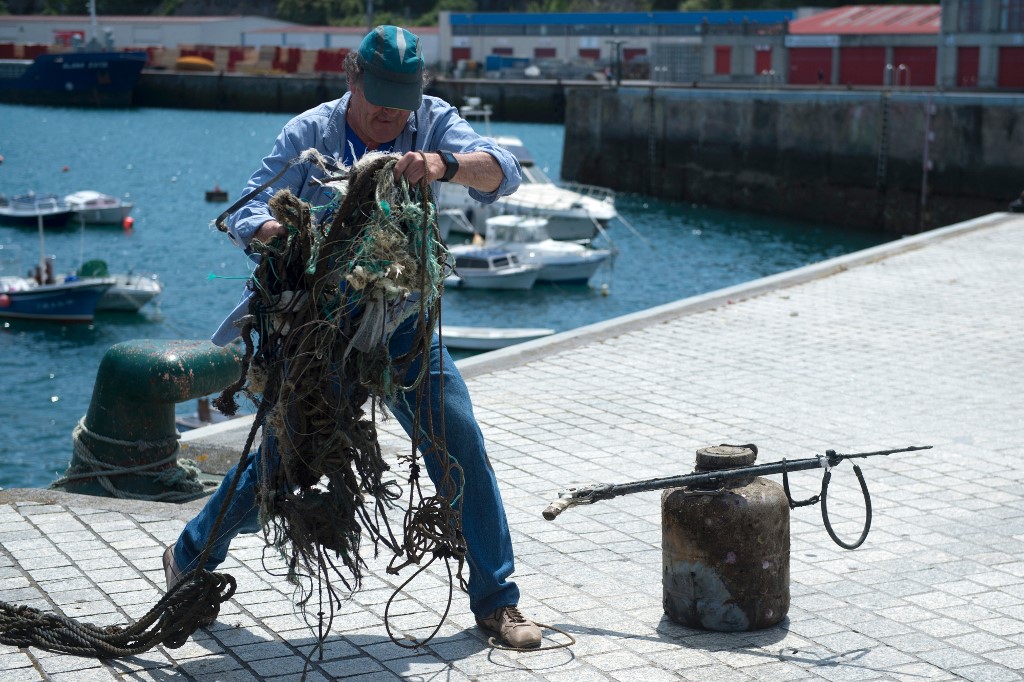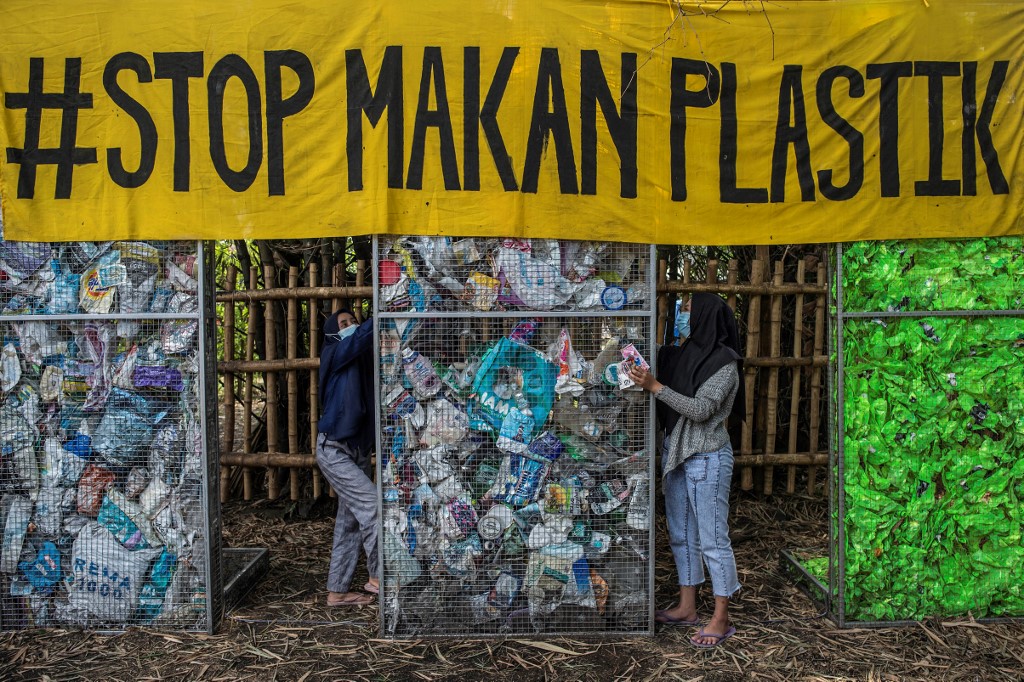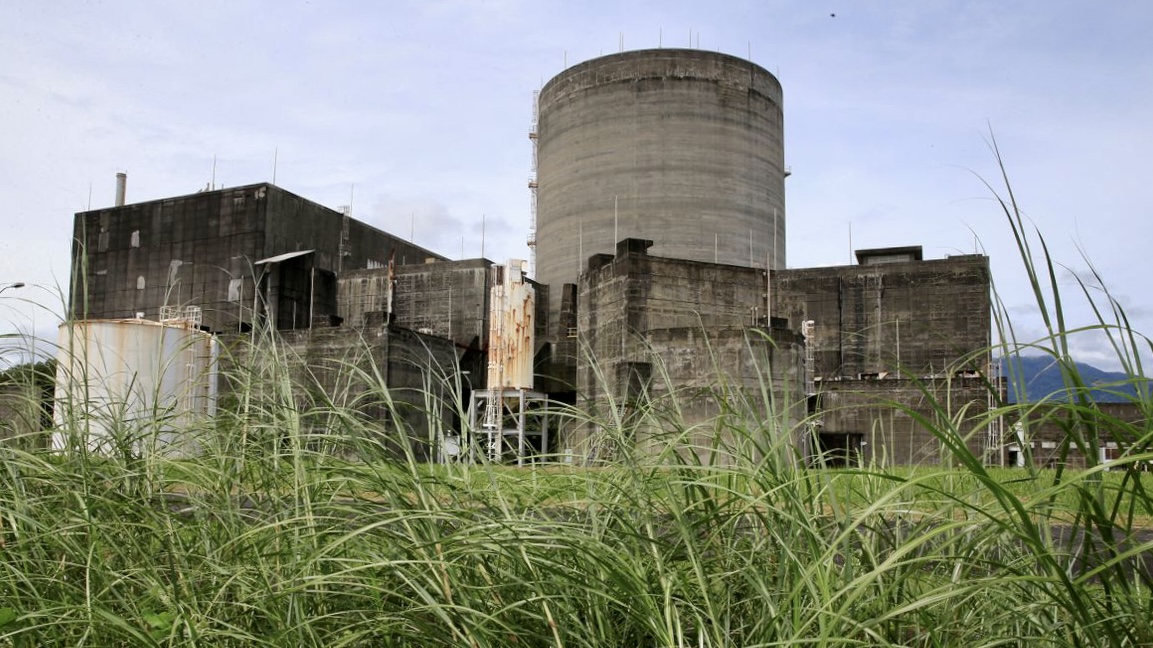[ad_1]

by Stéphane ORJOLLET
Agence France-Presse
PARIS, France (AFP) – Plastic has infiltrated all elements of the ocean and is now discovered “within the smallest plankton as much as the most important whale” wildlife group WWF stated on Tuesday, calling for pressing efforts to create a world treaty on plastics.
Tiny fragments of plastic have reached even essentially the most distant and seemingly-pristine areas of the planet: it peppers Arctic sea ice and has been discovered inside fish within the deepest recesses of the ocean, the Mariana Trench.
There isn’t any worldwide settlement in place to handle the issue, though delegates assembly in Nairobi for a United Nations atmosphere assembly this month are anticipated to launch talks on a worldwide plastics treaty.
WWF sought to bolster the case for motion in its newest report, which synthesises greater than 2,000 separate scientific research on the impacts of plastic air pollution on the oceans, biodiversity and marine ecosystems.
The report acknowledged that there’s at present inadequate proof to estimate the potential repercussions on people.
Nevertheless it discovered that the fossil-fuel derived substance “has reached each a part of the ocean, from the ocean floor to the deep ocean flooring, from the poles to coastlines of essentially the most distant islands and is detectable within the smallest plankton as much as the most important whale”.
‘Saturation level’

In line with some estimates, between 19 and 23 million tons of plastic waste is washed into the world’s waterways yearly, the WWF report stated.
That is largely from single-use plastics, which nonetheless represent greater than 60 p.c of marine air pollution, though an increasing number of international locations are appearing to ban their use.
“In lots of locations (we’re) reaching some form of saturation level for marine ecosystems, the place we’re approaching ranges that pose a big menace,” stated Eirik Lindebjerg, International Plastics Coverage Supervisor at WWF.
In some locations there’s a threat of “ecosystem collapse”, he stated.
Many individuals have seen photographs of seabirds choking on plastic straws or turtles wrapped in discarded fishing nets, however he stated the hazard is throughout your entire marine meals net.
It “will have an effect on not solely the whale and the seal and the turtle, however large fish shares and the animals that rely on these”, he added.
In a single 2021 examine, 386 fish species had been discovered to have ingested plastic, out of 555 examined.

Separate analysis, wanting on the main commercially fished species, discovered as much as 30 p.c of cod in a pattern caught within the North Sea had microplastics of their abdomen.
As soon as within the water, the plastic begins to degrade, changing into smaller and smaller till it’s a “nanoplastic”, invisible to the bare eye.
So even when all plastic air pollution stopped utterly, the quantity of microplastics within the oceans might nonetheless double by 2050.
However plastic manufacturing continues to rise, probably doubling by 2040, in line with projections cited by WWF, with ocean plastic air pollution anticipated to triple throughout the identical interval.
Enduring threat

Lindebjerg compares the scenario to the local weather disaster — and the idea of a “carbon finances”, that caps the utmost quantity of CO2 that may be launched into the ambiance earlier than a world warming cap is exceeded.
“There’s really a restrict to how a lot plastic air pollution our marine ecosystems can soak up,” he stated.
These limits have already been reached for microplastics in a number of elements of the world, in line with WWF, notably within the Mediterranean, the Yellow and East China Seas (between China, Taiwan and the Korean Peninsula) and within the Arctic sea ice.
“We have to deal with it as a set system that doesn’t soak up plastic, and that’s why we have to go in the direction of zero emissions, zero air pollution as quick as doable,” stated Lindebjerg.
WWF is looking for talks aimed toward drawing up a world settlement on plastics on the UN atmosphere assembly, from February 28 to March 2 in Nairobi.
It desires any treaty to result in international requirements of manufacturing and actual “recyclability”.
Attempting to wash up the oceans is “extraordinarily troublesome and intensely costly”, Lindebjerg stated, including that it was higher on all metrics to not pollute within the first place.
© Agence France-Presse
[ad_2]
Source link

















